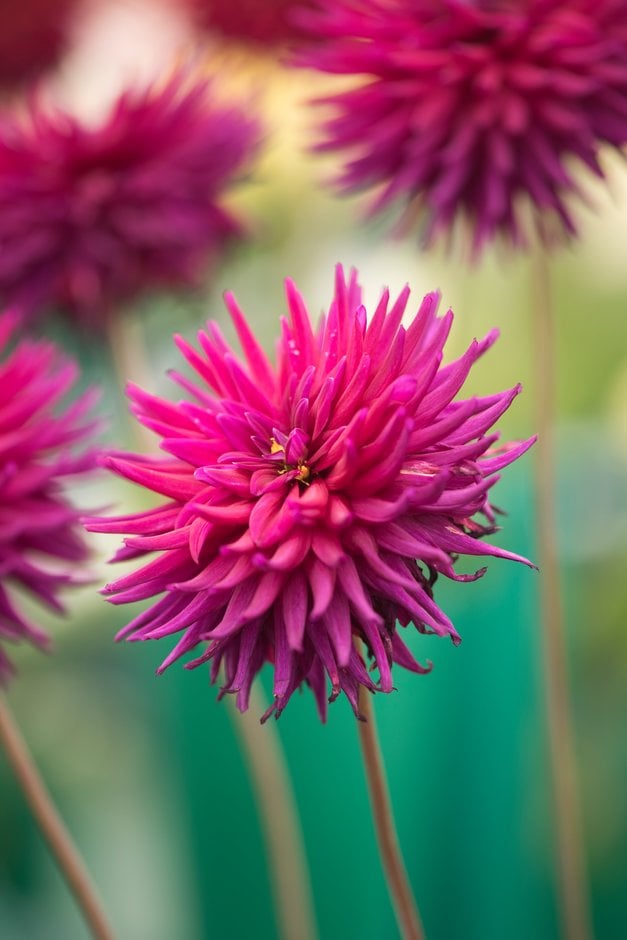Size
Ultimate height
1–1.5 metresTime to ultimate height
1–2 yearsUltimate spread
0.5–1 metresGrowing conditions
Moisture
Moist but well–drainedpH
Acid, Alkaline, NeutralColour & scent
| Stem | Flower | Foliage | Fruit | |
| Spring | ||||
|---|---|---|---|---|
| Summer | Red Purple | Green | ||
| Autumn | Red Purple | Green | ||
| Winter |
Position
- Full sun
Aspect
South–facing or West–facing or East–facing
Exposure
Sheltered Hardiness
H3Botanical details
- Family
- Asteraceae
- Native to GB / Ireland
- No
- Foliage
- Deciduous
- Habit
- Columnar upright
- Genus
Dahlia are tuberous rooted perennials with pinnately divided leaves and showy flowerheads, double in many cultivars, in summer and autumn
- Name status
Accepted
- Horticultural Group
- Cactus dahlias have fully double blooms, the florets are usually pointed, narrow and revolute for 65% or more of their length and either straight or incurving
How to grow
Cultivation
Grow in fertile, humus-rich, well-drained soil enriched with organic matter, in full sun. Pinch out growing tips to encourage bushy plants and stake - see staking perennials. Water if needed in dry periods. Lift and store tubers in autumn to replant, or use as a source of cuttings, in spring. See dahlia cultivation and our video How to plant dahlia tubers and care tips
Propagation
Propagate by basal softwood cuttings taken in spring from shoots from stored tubers, or divide the tubers, ensuring that each division has a viable bud
Suggested planting locations and garden types
- City and courtyard gardens
- Cottage and informal garden
- Patio and container plants
- Flower borders and beds
- Cut flowers
Pruning
Deadhead to prolong flowering. Cut back to near ground level in the autumn, before lifting and storing for the winter or mulching in milder locations
Pests
May be susceptible to aphids, capsid bug, earwigs, caterpillars, slugs, glasshouse red spider mite, and onion thrips
Diseases
May be susceptible to a virus, tubers may rot in store
Get involved
The RHS is the UK’s gardening charity, helping people and plants to grow - nurturing a healthier, happier world, one person and one plant at a time.
